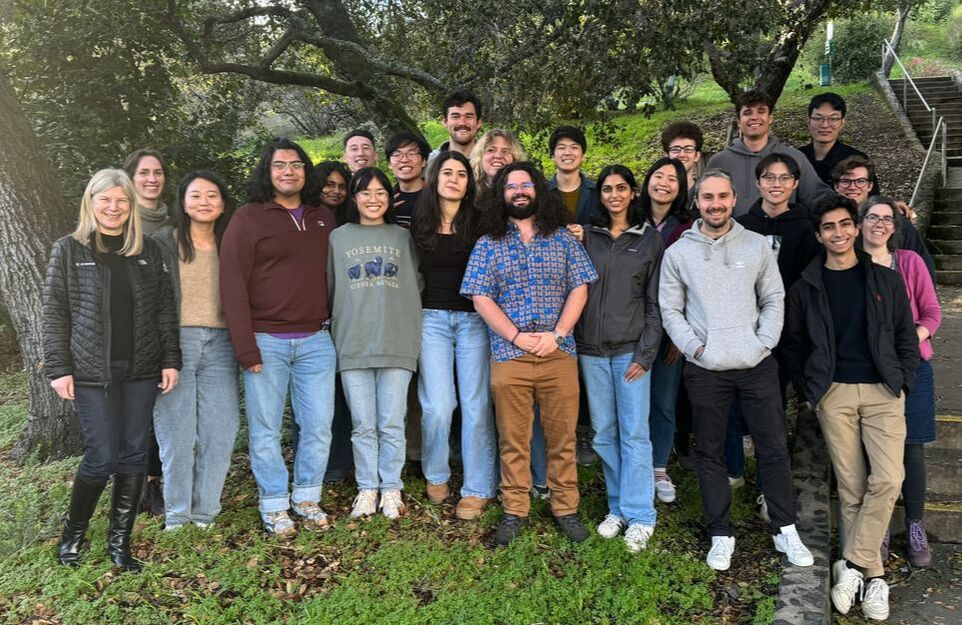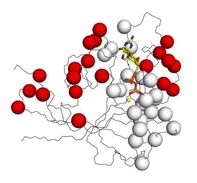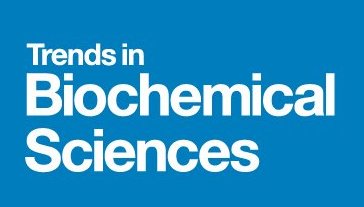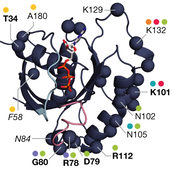Engineered biological systems, ranging from molecules with new functions to entire organisms, have tremendous practical importance; they can also fundamentally change how we ask questions about the biological principles of function and fitness. Our research aims to invent approaches to engineer new molecules that operate as predicted in biological contexts, and to utilize prediction and engineering to address fundamental questions on the relationship of molecular characteristics, cellular function and organismal fitness. To address the many current challenges in the field – from developing more predictive computational design methods to determining the requirements for function in cells – we combine concepts from computer science, physics, chemistry, mathematics, engineering and biology.
|
|
Selected Publications
|
|
Kortemme, T. (2024). De novo protein design—From new structures to programmable functions. Cell, 187 (3), 526–544. https://doi.org/10.1016/j.cell.2023.12.028.
Mathy, C. J. P., Mishra, P., Flynn, J. M., Perica, T., Mavor, D., Bolon, D. N. A., & Kortemme, T. (2023). A complete allosteric map of a GTPase switch in its native cellular network. Cell Systems, 14(3), 237-246.e7. https://doi.org/10.1016/j.cels.2023.01.003
Perica T*, Mathy CJP*, Xu J, Jang GΜ, Zhang Y, Kaake R, Ollikainen N, Braberg H, Swaney DL, Lambright DG, Kelly MJS, Krogan NJ, Kortemme T. Systems-level effects of allosteric perturbations to a model molecular switch. Nature. 2021 Oct 13:1-6.
Pan X, Thompson M, Zhang Y, Liu L, Fraser JS, Kelly MJS & Kortemme T (2020). Expanding the space of protein geometries by computational design of de novo fold families. Science 369(6507):1132-1136.
Glasgow AA, Huang YM, Mandell DJ, Thompson M, Ritterson R, Loshbaugh AL, Pellegrino J, Krivacic C, Pache RA, Barlow KA, Ollikainen N, Jeon D, Kelly MJS, Fraser JS, Kortemme T. (2019) Computational design of a modular protein sense-response system. Science. 22;366(6468):1024-1028.
Kundert K, Lucas JE, Watters KE, Fellmann C, Ng AH, Heineike BM, Fitzsimmons CM, Oakes BL, Qu J, Prasad N, Rosenberg OS, Savage DF, El-Samad H, Doudna JA, Kortemme T. (2019) Controlling CRISPR-Cas9 with ligand-activated and ligand-deactivated sgRNAs. Nat Commun. 9;10(1):2127.
Hoersch D, Roh SH, Chiu W, Kortemme T. (2013) Reprogramming an ATP-driven protein machine into a light-gated nanocage. Nat Nanotechnol. 8(12):928-32.
Eames M, Kortemme, T. (2012). Cost-benefit tradeoffs in engineered lac operons. Science 336(6083): 911-915.
Mathy, C. J. P., Mishra, P., Flynn, J. M., Perica, T., Mavor, D., Bolon, D. N. A., & Kortemme, T. (2023). A complete allosteric map of a GTPase switch in its native cellular network. Cell Systems, 14(3), 237-246.e7. https://doi.org/10.1016/j.cels.2023.01.003
Perica T*, Mathy CJP*, Xu J, Jang GΜ, Zhang Y, Kaake R, Ollikainen N, Braberg H, Swaney DL, Lambright DG, Kelly MJS, Krogan NJ, Kortemme T. Systems-level effects of allosteric perturbations to a model molecular switch. Nature. 2021 Oct 13:1-6.
Pan X, Thompson M, Zhang Y, Liu L, Fraser JS, Kelly MJS & Kortemme T (2020). Expanding the space of protein geometries by computational design of de novo fold families. Science 369(6507):1132-1136.
Glasgow AA, Huang YM, Mandell DJ, Thompson M, Ritterson R, Loshbaugh AL, Pellegrino J, Krivacic C, Pache RA, Barlow KA, Ollikainen N, Jeon D, Kelly MJS, Fraser JS, Kortemme T. (2019) Computational design of a modular protein sense-response system. Science. 22;366(6468):1024-1028.
Kundert K, Lucas JE, Watters KE, Fellmann C, Ng AH, Heineike BM, Fitzsimmons CM, Oakes BL, Qu J, Prasad N, Rosenberg OS, Savage DF, El-Samad H, Doudna JA, Kortemme T. (2019) Controlling CRISPR-Cas9 with ligand-activated and ligand-deactivated sgRNAs. Nat Commun. 9;10(1):2127.
Hoersch D, Roh SH, Chiu W, Kortemme T. (2013) Reprogramming an ATP-driven protein machine into a light-gated nanocage. Nat Nanotechnol. 8(12):928-32.
Eames M, Kortemme, T. (2012). Cost-benefit tradeoffs in engineered lac operons. Science 336(6083): 911-915.
|
|
Perspectives and Reviews
|
|
Kortemme, T. (2024). De novo protein design—From new structures to programmable functions. Cell, 187 (3), 526–544. https://doi.org/10.1016/j.cell.2023.12.028.
Mathy CJP, Kortemme T. Emerging maps of allosteric regulation in cellular networks. Curr Opin Struct Biol. 2023 Jun;80:102602. doi: 10.1016/j.sbi.2023.102602.
Alberstein RG*, Guo AB*, Kortemme T. Design principles of protein switches. Current Opinion in Structural Biology. 2022 Feb 1;72:71-8. https://doi.org/10.1016/j.sbi.2021.08.004.
Pan X, Kortemme T. Recent advances in de novo protein design: principles, methods, and applications. Journal of Biological Chemistry. 2021 Mar 18:100558. https://doi.org/10.1016/j.jbc.2021.100558
Mathy CJP, Kortemme T. Emerging maps of allosteric regulation in cellular networks. Curr Opin Struct Biol. 2023 Jun;80:102602. doi: 10.1016/j.sbi.2023.102602.
Alberstein RG*, Guo AB*, Kortemme T. Design principles of protein switches. Current Opinion in Structural Biology. 2022 Feb 1;72:71-8. https://doi.org/10.1016/j.sbi.2021.08.004.
Pan X, Kortemme T. Recent advances in de novo protein design: principles, methods, and applications. Journal of Biological Chemistry. 2021 Mar 18:100558. https://doi.org/10.1016/j.jbc.2021.100558
|
|
Highlights from the Lab
|
|
|
UCSF wrote a news story summarizing Chris's work on mapping Gsp1's allosteric sites in its native biological network, which was published earlier in 2023 in Cell Systems.
How proteins orchestrate the biology of the cell |
|
Tina and Chris's work on Gsp1 was selected for a "Spotlight" piece in Trends in Biochemical Sciences.
A kinetic mechanism for systems-level behavior in GTPase signaling |
|
UCSF wrote up a nice highlight on Tina and Chris's paper in Nature describing the cellular effects of allosteric mutations in Gsp1
How Cells Multitask: The Magic of Molecular Switches |
|
|
Samuel's QBI interview for the 2017 Dr. Herbert Landahl Mathematical Biophysics Student Excellence Award.
|
|
Our biosensor project wins first prize in Gen9's inaugural G-Prize contest
|





